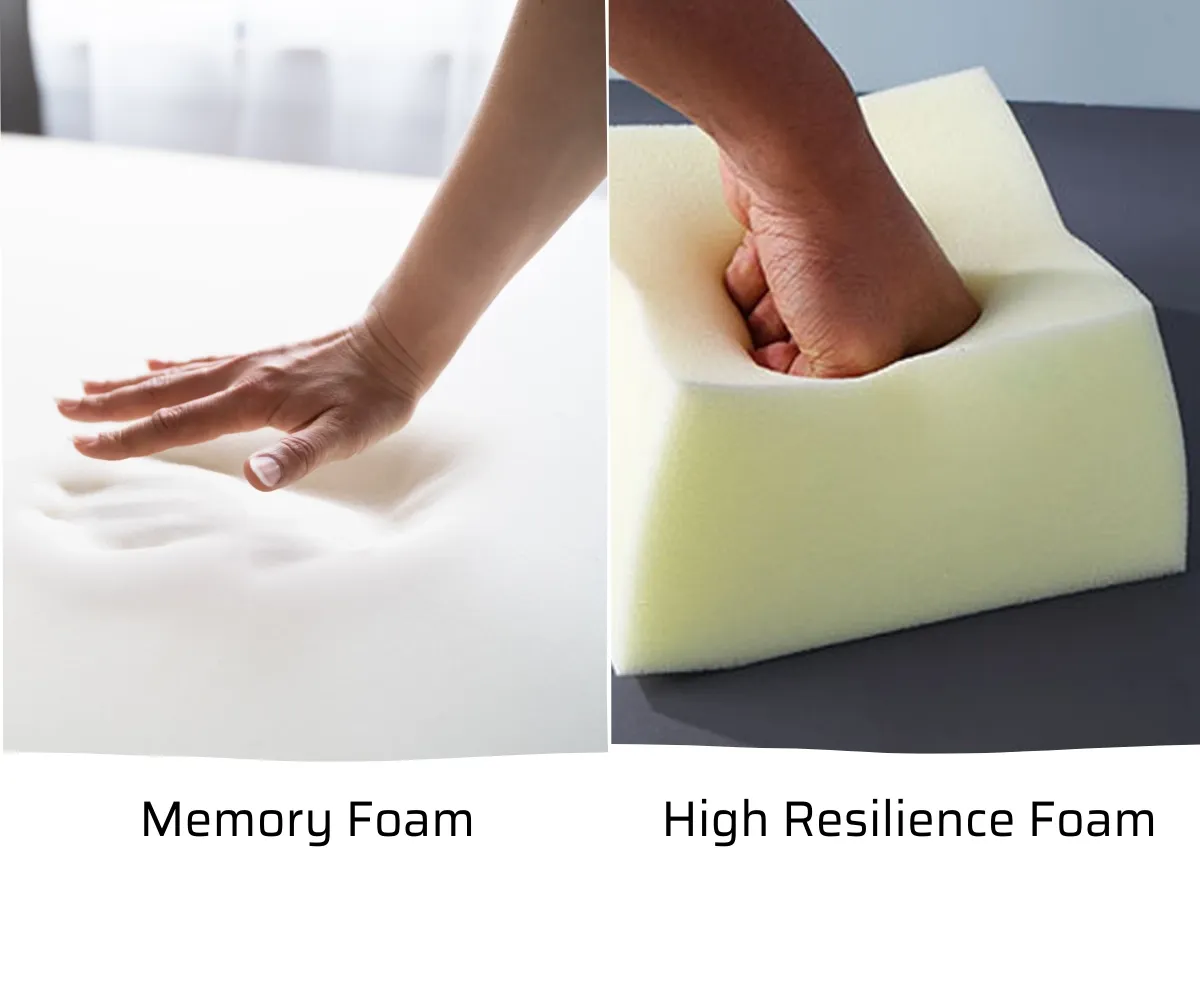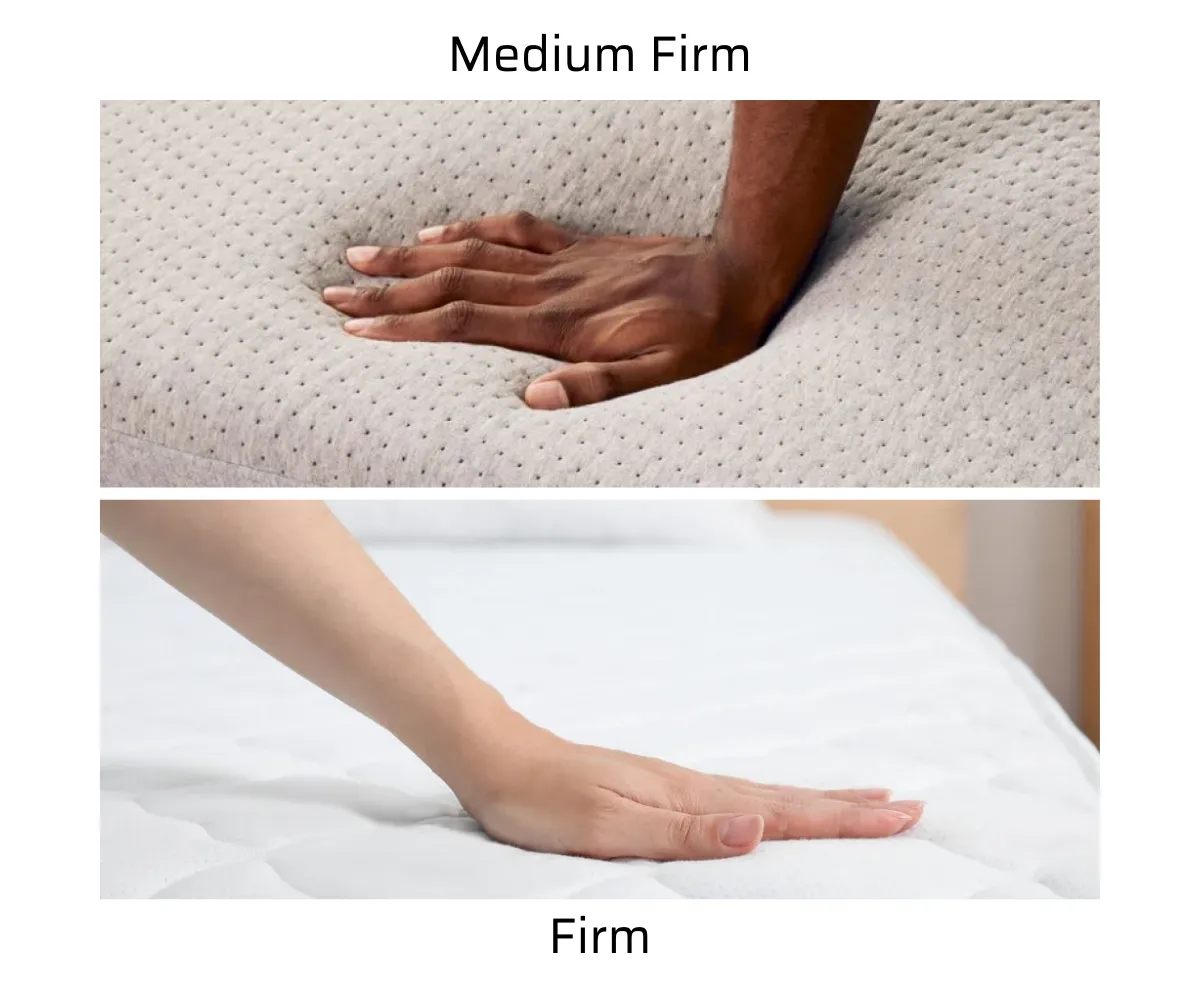Our Top Picks
- Best Overall Mattress: Zinus Green Tea Mattress
- Best Value Mattress: Linenspa Hybrid Mattress
- Best Budget Mattress: Amazon Basics Memory Foam Mattress
- Best Mattress for Back Pain: Casper Memory Foam Mattress
- Best Mattress for Side Sleepers: Novilla Memory Foam Mattress
How to Choose the Right Mattress
Buying a mattress is an important decision that can affect your sleep quality, comfort, and health. However, all bodies are different, so there are many features that you should consider carefully to get closer to your ideal mattress.
Materials
Mattresses are usually made from springs or foam to properly align the spine, support your body and relieve pressure. Both come in various sizes and firmness levels and can have comfort zones to prevent certain parts of your body from sinking.
1. Spring Mattresses
Spring mattresses use metal coils to spread your body weight evenly, so that they could reduce pressure points. They always have at least one layer of foam (or natural latex) on top for added comfort.
- Pocket springs: Wrapped in individual covers and work independently.
- Bonnell springs: All connected together.

Pocket springs are recommended over Bonnell for couples to reduce the impact of your sleep partner’s movements.
- Wooden base spring mattresses: Include a self-supporting frame, often with a double layer of springs.
- Hybrid mattresses: Combine pocket springs with foam layers for sturdy, pressure relief.
Spring mattresses are made for hot sleepers because they allow air to flow through, which can help keep you cool.
2. Foam Mattresses
Foam mattresses use a combination of different foams to support your body and relieve pressure.
- Memory foam: Dense and stretchy, shapes to your curves and boosts blood flow to muscles and skins, enables you to fully relax.
- Standard foam (polyurethane): Creates a stable sleeping environment and provides firm or soft support.
- High resilience foam: More durable than standard foam, and bounces back quickly.
Reducing movement shock, foam is also great if you're not sleeping alone. Foam hugs the body and often feels warmer than a spring mattress, ideal for cold sleepers.
Keep in mind that bedroom temperature can impact your sleep.

Firmness level
Your sleeping position plays an important role in selecting a mattress with the best firmness. Weight doesn’t define you, but it does influence the level of support you need for a comfortable night's rest.
1. Medium firm mattresses are ideal for:
- Side sleepers under 85kg: A medium firm mattress shapes to the shoulders and hips, especially with comfort zones.
Recommend: Use a high pillow for better alignment.
- Back sleepers under 60kg: It prevents neck and lower back from sinking too much.
Recommend: Pair with a low pillow to keep the spine straight.
- Stomach sleepers under 60kg: A medium firm feel helps avoid stressing the spine.
Recommend: Sleep with a very low pillow or no pillow at all.
2. Firm mattresses are perfect for:
- Side sleepers over 85kg
- Back sleepers over 60kg
- Stomach sleepers over 60kg

Size
Make sure the mattress you choose fits your bedroom, bed frame and body. Always measure your space or existing frame and compare with the product measurements. Your feet should stay comfortably on the bed with enough room to move and turn with ease.
If you share your bed, consider two single mattresses as they may meet individual needs better than one double mattress.
Protect Your Mattress
No matter which mattress is best for you, a mattress protector is recommended to keep it fresh, clean and long-lasting, shield it from dirt and stains.
To care for your mattress, you should vacuum it twice a year, and turn it every six months to even out the wear. A mattress topper can also work as a protective layer, but we recommend it with spring mattresses. A topper can counter the comfort of a foam or latex mattress.
Why You Should Trust Us
At Retail Coupons, we understand how important a good mattress is for your health and comfort. To find the best mattresses for different types of sleepers, we researched and evaluated hundreds of models thoroughly.
We are confident that our reviews are rigorous and unbiased. Our recommendations are based on extensive research, expert insights, and several customer feedback.
We aim to provide honest, clear advice so that you can make confident decisions and enjoy better sleep every night.
Final Thoughts
Choosing the right mattress is essential for a good night's sleep and long-term health. Throughout this guide, we have covered important factors like materials, firmness levels, as well as mattress size and care tips to help your mattress last longer. We hope you find the most suitable mattress, and improve your sleep experience.
Among our top picks, the Zinus Green Tea Mattress shines for its great comfort and durability. The Amazon Basics Memory Foam Mattress is highly recommended if you're seeking a budget-friendly mattress that still performs well.
FAQs
1. Is a hybrid mattress better than a foam or spring mattress?
Yes. Hybrid mattresses combine the support of springs with the comfort of foam layers. They suit people wanting both pressure relief and good airflow.
2. Can mattress size affect my sleep quality?
Yes, your mattress should fit both your body size and room space. A mattress that’s too small may restrict movement and impact sleep quality.
3. How long should the mattress be compared to my height?
Mattress length should be at least six inches longer than your height to ensure comfort and space to move.
4. Is firm or soft better for your back?
Generally, a firmer mattress is often better for back problems, as it supports proper spine alignment, distributes weight evenly, and helps relieve pain and pressure.
5. How often should I replace my mattress?
Most mattresses last between 7 to 10 years depending on the quality and usage. If you notice sagging, discomfort, or increased allergies, it may be time to replace it.

![ZINUS 12 Inch Green Tea Cooling Memory Foam Mattress [New Version], Twin, Fiberglass Free, Medium Firmness, Cooling Gel Foam, Certified Safe Foams & Fabric, Mattress in A Box](/_next/image/?url=https%3A%2F%2Fimages-na.ssl-images-amazon.com%2Fimages%2FI%2F41Ex3U8-XIL.jpg&w=640&q=75)












